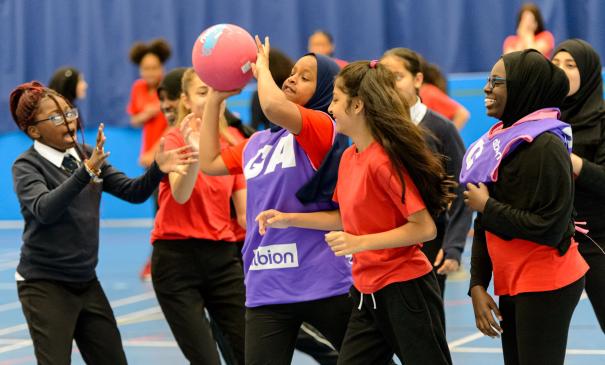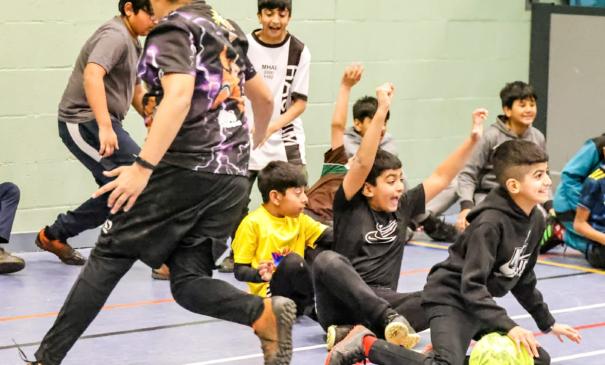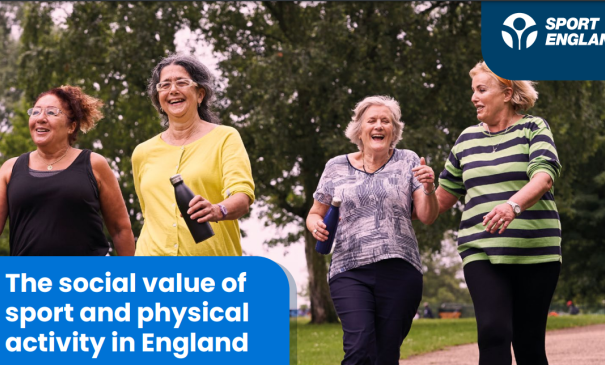The Sport for Development Coalition, in partnership with Street Games and the Personal Best Foundation, hosted its 'Sport For Development: A Force for Good During Times of Change' conference on October 1, 2024, in Birmingham, with key discussions centred around tackling social inequalities through sport ranging across fundraising, inclusivity, and innovative strategies. The event brought together over 70 professionals, policymakers, and community leaders dedicated to enhancing the impact of sports in underserved communities.
Andy Reed OBE, Chair of the Sport for Development Coalition, emphasised the importance of collaboration and shared vision among organisations: "It’s amazing what we can achieve working together when nobody wants to take the credit!" His call to action resonated with attendees, highlighting the need for a collective approach to maximise impact.
Ashley Metcalfe, CEO of Paddle UK, shared his insights from a National Governing Body perspective about the importance of engaging underserved communities: “I think the key thing for us as we move forward, is that we have to offer really inclusive and welcoming opportunities for everyone that wants to try and get out on the water and really enjoy the physical and mental health benefits. The nice thing is that there's a number of partnerships where people can come together collaboratively and with a far, far better chance of making a real impact as opposed to everybody just working on their own. My takeaway is 'how do we work more closely?'”
In addition to several keynote addresses, such as from Sport England and the West Midlands Combined Authority, the conference featured six breakout sessions relating to different areas of the Coalition’s Open Goal framework. Attendees gained valuable insights in areas including environmental sustainability, mental health and wellbeing, employability and fundraising within the sport for development sector. These sessions, facilitated by industry experts, provided practical tools for enhancing organisational capacity and adapting to the changing national political and economic landscape.
Key highlights:
1. The Role of Sport in Crime Prevention: Stuart Felce and Graham Helm (Street Games) discussed how sport can play a critical role in preventing crime and antisocial behavior. By harnessing national policy priorities around safer streets, the sector can address social issues while promoting the benefits of sports for community cohesion.
2. Environmental Sustainability and Inclusion: David Gent from Active Humber emphasised the importance of sustainability within the sport sector, urging organisations to adopt inclusive practices that cater to diverse communities. He presented ongoing initiatives aimed at increasing physical activity among children and young people while promoting positive experiences. The emphasis on intersectionality in diversity, equity, and inclusion (EDI) strategies was a recurring theme, with calls for organisations to commit to excellence in these areas.
3. Tackling Inequalities: Viveen Taylor from Sport England reiterated the ongoing need to tackle societal inequalities from an intersectional perspective. She stressed the need for collaboration among smaller partners to create a greater collective impact, while also highlighting the role of environmental sustainability as a shared responsibility within the sector following the recent publication of Sport England’s ‘Every Move’ strategy.
4. Employment and Skills Development: Tom Clarke-Forrest (Sport 4 like UK), Gary Laybourne and Paul Thompson (Coach Core) highlighted the alarming youth unemployment rate of 14.2%, noting the unique opportunity that sports organisations have to support young people in finding meaningful employment. The session emphasised the importance of skills development and training in facilitating transitions into the workforce and heard powerful personal testimonies from Zoe-Jane Littlewood and Zainab Obani.
5. Mental Health and Wellbeing: Hayley Jarvis from Mind led an interactive session around nurturing a healthy delivery workforce focussing on safe and effective practice for physical activity mental health provision.
6. Social Inclusion Cohesion: In the wake of this summer's nationwide riots and unrest, Jamie Scudamore from Belong delivered a timely session on the role of sport in fostering social cohesion. The presentation emphasised the potential of sport to unite communities and outlined Belong's plan to create an index identifying areas at risk of social division. This index will help inform government and local organisations, including those in the sport for development sector, to collaborate more effectively and build stronger, more resilient, and connected communities.
7. Fundraising and Support for Development: Rahul Bissoonauth and Luke Southall from Remedy focused on the fundraising landscape and revealed the challenges faced by some sport for development organisations. The need for a collective approach to advocate for investment in sport for development was subsequently highlighted including how compelling narratives and partnerships that align with common goals can help.
At the conference, the Personal Best Foundation launched its latest research in collaboration with Leeds Beckett, exploring the impact of sport for development programs on community wellbeing. The findings will be instrumental in guiding future initiatives and strengthening advocacy efforts for funding and support in this vital sector.
Hitesh Patel, the Executive Director of the Sport for Development Coalition, highlighted the importance of strategic partnership working and explained that work is underway for the Coalition to have expert organisational partners in place for the different social outcome areas of its Open Goal framework with collective impact underpinning this activity. With organisations within the Coalition network now numbering over 400, there is an ambition to stage more events similar to this conference for a wider audience. Hitesh said: “It is clear from today’s discussions that there is an ongoing need for strengthening and coordinating inclusivity and environmental sustainability efforts across the sport for development sector. Collaboration among partners is essential and, by working more effectively together, we can help create a more inclusive and equitable future for all.”



